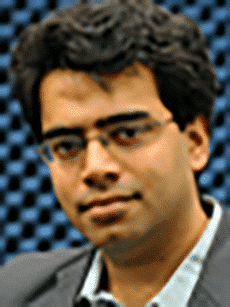Summary
Integrated CMOS Non-reciprocal Components for full-duplex and 5G mm-wave applications
Please see this webinar in: https://event.on24.com/wcc/r/1946736/8F26ACADA6F678F5F315503186440882
Lorentz reciprocity is a fundamental property of linear time-invariant passive circuits and systems constructed from conventional materials. However, non-reciprocal components, such as circulators, enable new wireless communication paradigms, such as full duplex wireless. Conventionally, non-reciprocal circulators have been realized using ferrite materials that exhibit the magneto-optic Faraday effect, and are consequently incompatible with CMOS, bulky, and expensive. Recent research has shown that reciprocity can be broken and non-reciprocal circulators can be built in CMOS using linear periodically time-varying (LPTV) circuits. This represents an interesting and unique property of LPTV circuits beyond the traditionally exploited tunable high-quality filtering in the so-called “N-path filters”. We will describe the fundamental physical principles, as well as three generations of CMOS circulators and circulator-based wireless systems that target emerging full-duplex and 5G millimeter-wave applications.
Speakers

Associate Professor and the Director of the Columbia High-Speed and Millimeter-Wave IC Laboratory (CoSMIC)
Columbia University
Harish Krishnaswamy received the B.Tech. degree in electrical engineering from IIT Madras, Chennai, India, in 2001, and the M.S. and Ph.D. degrees in electrical engineering from the University of Southern California (USC), Los Angeles, CA, USA, in 2003 and 2009, respectively. In 2009, he joined the Electrical Engineering Department, Columbia University, New York, NY, USA, where he is currently an Associate Professor and the Director of the Columbia High-Speed and Millimeter-Wave IC Laboratory (CoSMIC).
In 2017, he co-founded MixComm Inc., a venture-backed startup, to commercialize CoSMIC Laboratory’s advanced wireless research. His current research interests include integrated devices, circuits, and systems for a variety of RF, mmWave, and sub-mmWave applications.
Prof. Krishnaswamy was a recipient of the IEEE International Solid-State Circuits Conference Lewis Winner Award for Outstanding Paper in 2007, the Best Thesis in Experimental Research Award from the USC Viterbi School of Engineering in 2009, the Defense Advanced Research Projects Agency Young Faculty Award in 2011, the 2014 IBM Faculty Award, the 2015 IEEE Radio Frequency Integrated Circuits Symposium Best Student Paper Award (First Place), and the 2017 IEEE ISSCC Demonstration Session Certificate of Recognition. He has been a member of the technical program committee of several conferences, including the IEEE International Solid-State Circuits Conference since 2015 and the IEEE Radio Frequency Integrated Circuits Symposium since 2013. He currently serves as a Distinguished Lecturer for the IEEE Solid-State Circuits Society and as a member of the DARPA Microelectronics Exploratory Council.